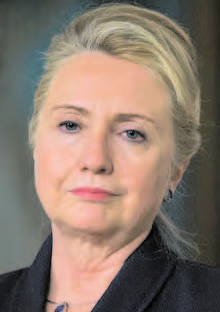
Agrand jury’s exoneration of Darren Wilson, the white police officer who on August 9 shot dead an unarmed teenager on the streets of Ferguson, Missouri, sent shock waves across the United States this week. The fact that 18-year-old Michael Brown died violently on the streets of the quiet St. Louis suburb and no one will be held accountable for his death has left Americans of all colors once again searching their souls for answers. Some of them made their anger known to the world.
Thousands took to the streets across major cities, braving the likelihood of yet another heavy-handed crackdown by the police and the National Guard. In Ferguson, the rage spilled over and took an ugly turn as gunfire erupted across the night, dozens of buildings and police cars were set ablaze, and looters had a free run in parts of the city.
President Barack Obama reiterated his muted call for calm on all sides, but had clearly not sensed the mood of collective anguish that was engulfing the African-American community, or did not wish to confront the questions that they were asking: why had a behindclosed- doors grand jury that was 75 per cent white decided that there was no probable cause to take the case to trial? Why was police officers’ use of deadly force, especially against minorities, considered an acceptable practice? The Brown-Wilson case holds up a mirror unto the troubling state of race relations in America.
First, it is only the latest in a long list of flashpoints triggered by law enforcement brutality towards unarmed African- Americans, including the 2012 shooting of Trayvon Martin (17) and the videotaped 1991 beating of Rodney King, both cases in which the accused officers were acquitted. Second, it shows how public prosecutors or other government officials may maneuver juridical proceedings in a manner that renders a plaintiff victory effectively impossible. Since the verdict was announced, the St. Louis County Prosecutor, Robert McCulloch, has come under fire for his decision to use a grand jury in this highly sensitive case, thus precluding a transparent and exhaustive trial involving detailed cross-examination.
Third, the imprint of the racist stereotyping of African-Americans amongst police officers, which was arguably evident in the testimony of Mr. Wilson, has a wider echo in terms of relatively higher incarceration rates. The searing racism in the U.S. has often made it an uncomfortable place for minorities, as it was for Muslims, Sikhs and even Hindus in the aftermath of the 9/11 terror attacks. African- Americans of all backgrounds, however, face a daily, ongoing threat to their lives and security, given the toxic mix of historical prejudice and law enforcement’s gun culture.
(The Hindu)




Be the first to comment